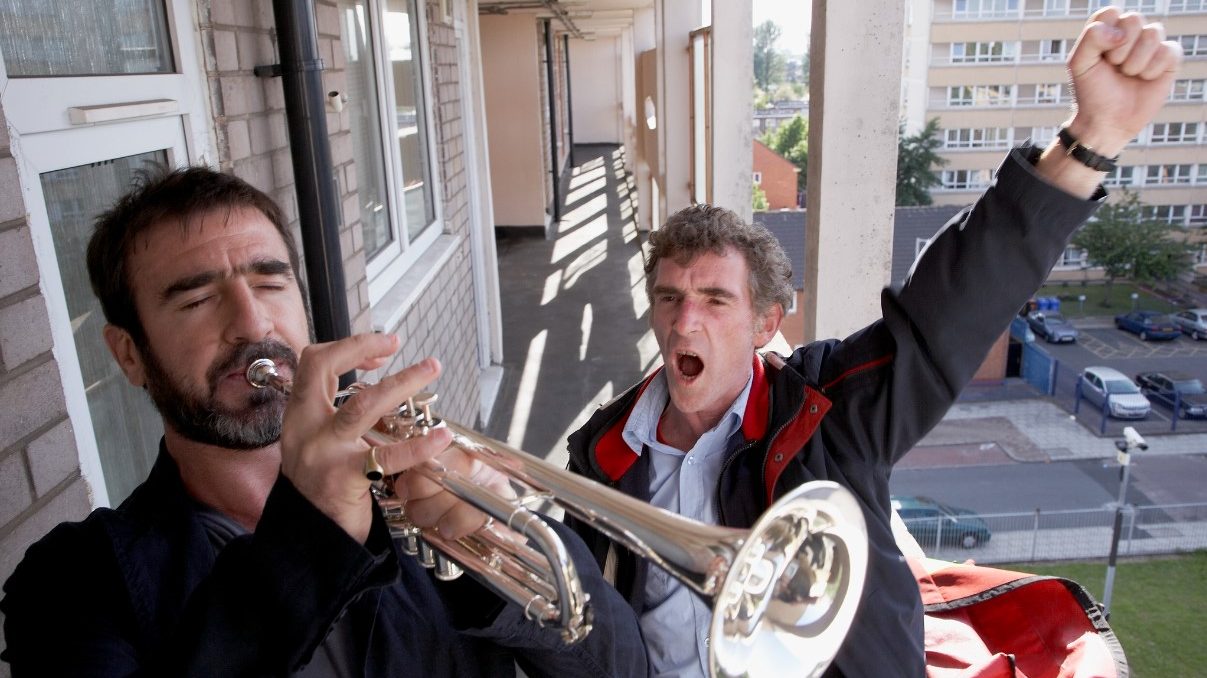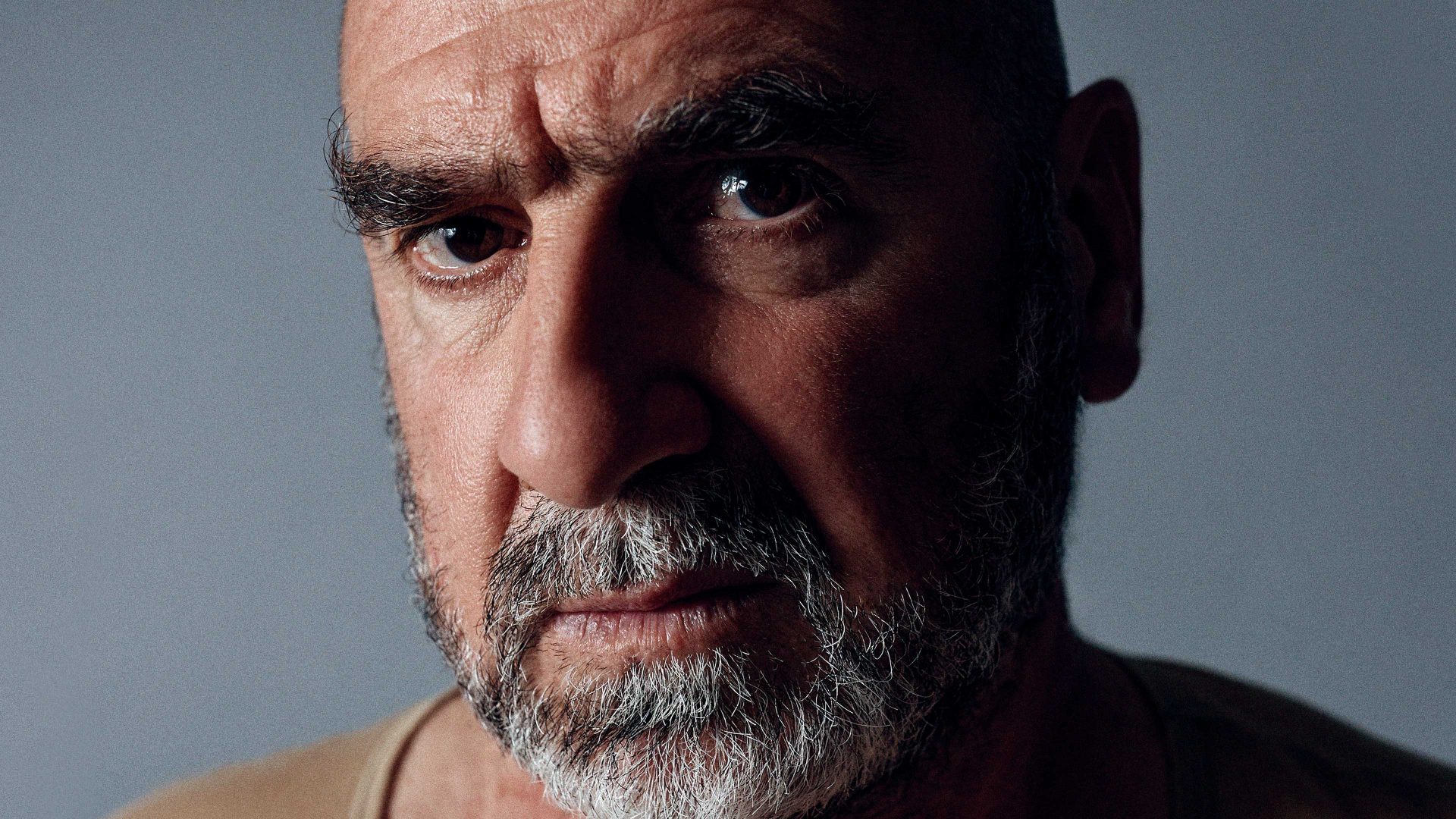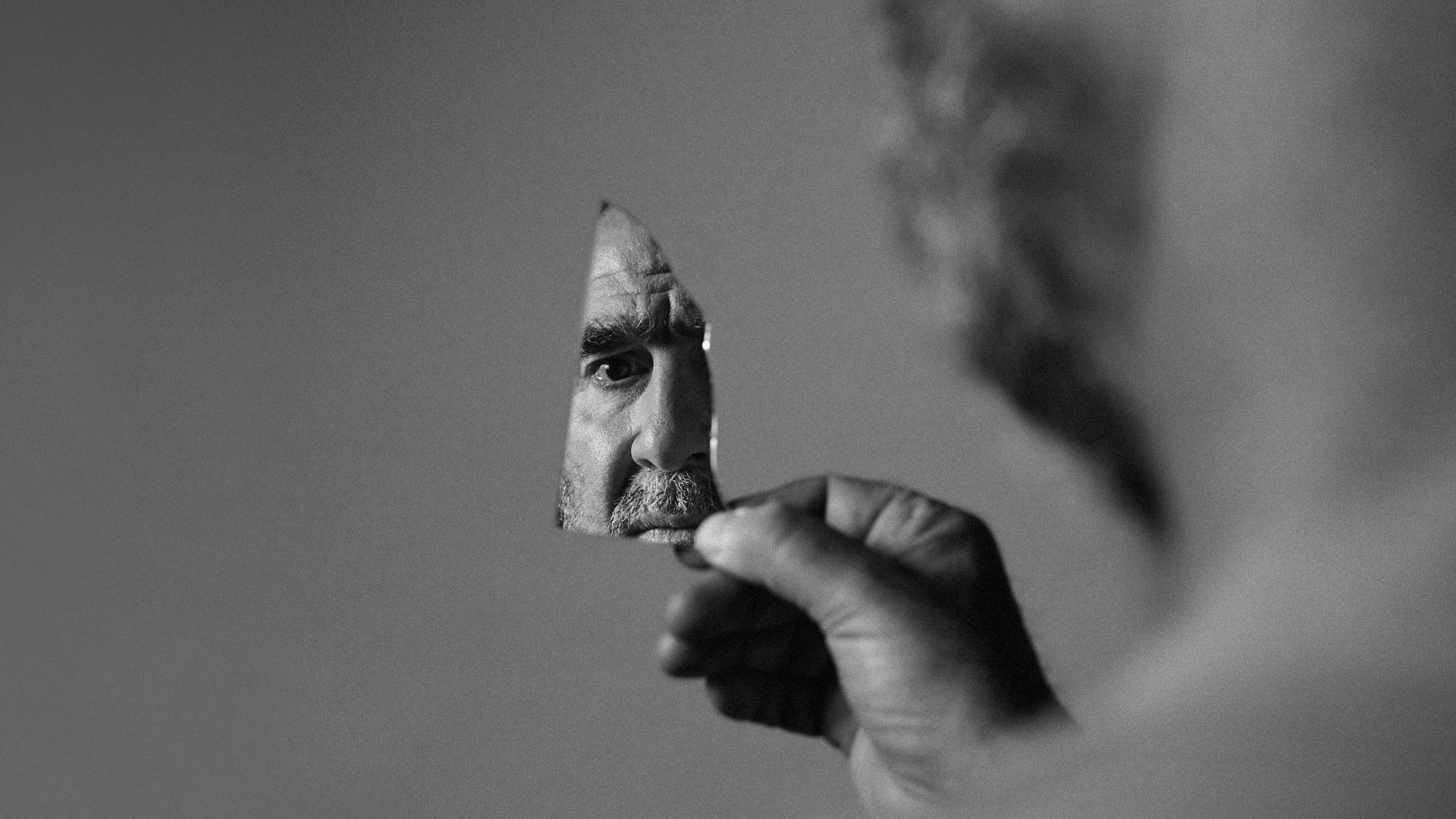Let’s be honest, it was always a bit of theatre watching him play, so it shouldn’t have been a surprise when Eric Cantona quit football for acting.
Being French, he opted for the cinema, of course, presumably having had enough of live performance as a player on the main stage for so long. And, after what happened with the kung-fu kick at Crystal Palace, would anyone really want to sit in the stalls while Eric frets and struts his stuff, live and in the flesh just a few feet from you?
Cantona’s list of credits on IMDb runs to over 40 screen appearances, roughly as many in total as his international caps for France although, being truthful, one could hardly say his second career has matched the first, for impact or beauty. “Some people were not ready to see me doing something else,” he told an interviewer a few years ago. “They’ve got such a strong image of you in your previous life and they just want to hold on to this image.”
Cantona first took up acting during his kung-fu kick suspension in 1995, playing “un rugbyman” called Lionel in Le Bonheur dans le Pré (Happiness is in the Field) for director Étienne Chatiliez. Eric plays alongside his brother, Joël, in the south of France-set comedy, about a man (Michel Serrault) who, fed up with his life running a toilet factory, poses as a missing person. Aside from Cantona’s debut, the film was notable for fine performances in the major roles by stars including Sabine Azéma and Carmen Maura, while French rocker Eddy Mitchell stole the show and won a César for best supporting actor as the lead character’s gruff best friend and drinking buddy.
Cantona’s next acting foray came after his shock retirement in 1997 at the age of 30. He strolled into a role in the award-winning 1998 costume drama Elizabeth, starring Cate Blanchett and directed by Shekhar Kapur. Although a named part, that of French ambassador Paul de Foix, Eric really didn’t have much to do apart from wear a fine costume and tights and stand in the background. I seem to remember him playing a lute, but maybe I’ve made that bit up.
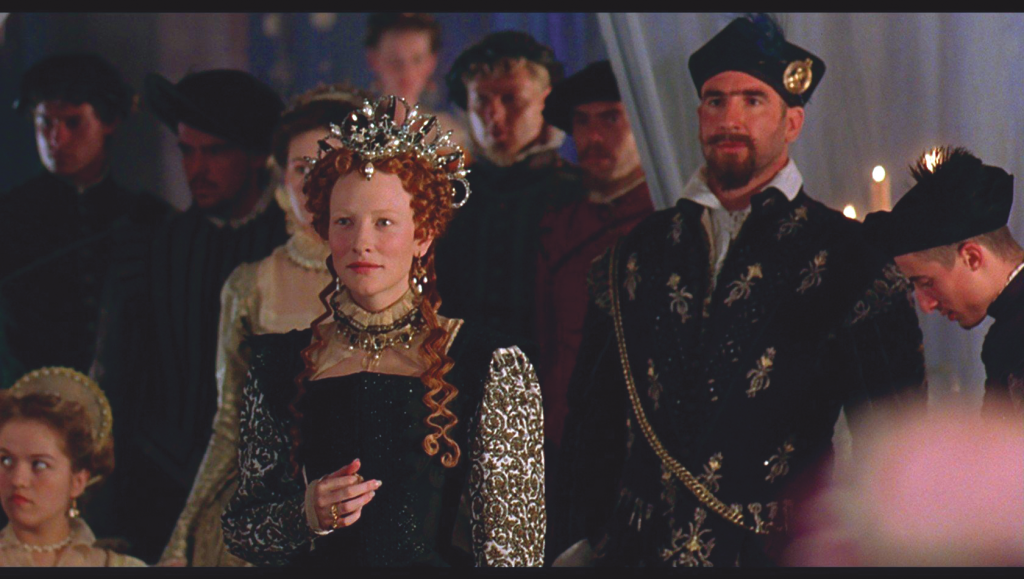
WireImage/Getty
These two movies marked an auspicious start. Cantona was hardly the star, as he had been for his football teams, but both films were successful and showed good instincts on his part.
The trend continued in 1999 with Les Enfants du Marais (Children of the Marshland), as Cantona joined an illustrious cast for the 1920s-set pastoral piece, directed by Jean Becker and starring highly respected thesps including Jacques Villeret, André Dussollier, Michel Serrault (again) and Isabelle Carré. It was one of that year’s most successful films in France but it took a while before Cantona landed a lead role all to himself in 2003’s The Overeater (L’outremangeur), in which he played an obese detective in the Marseille police who falls in love with a beautiful murder suspect (played by Cantona’s future wife, Rachida Brakni) whom he invites to dinner every night for a year.
Sadly, it was not to herald a breakthrough as a leading man for Eric. He popped up in some minor French comedies and, despite his huge popularity (and notoriety) in the UK, his strong French accent and silent charisma found him limited to parts in low-budget gangster films such as 2008’s Jack Says, starring Mike Reid (in his final film role) and Rula Lenska. He hardly fared better playing pretentious French film-maker Thierry Grimandi (a character whose name was an amalgam of Arsenal footballers Thierry Henry and Gilles Grimandi) in a 2008 Britcom called French Film which, despite starring Anne-Marie Duff and Hugh Bonneville, failed to impress audiences or critics.
Just as the acting career seemed to be failing, Cantona was rescued by revered director Ken Loach for his 2009 social realist comedy Looking for Eric in which the footballer was cast as a version of himself, the object of hero worship for a Manchester United fan and postman, also called Eric, played by Steve Evets. After Eric has smoked some pot, Cantona appears to him in a vision and stays by his side, giving him pearls of advice on how to navigate the travails of his life, including extricating his stepson Ryan from the clutches of the local crime boss.
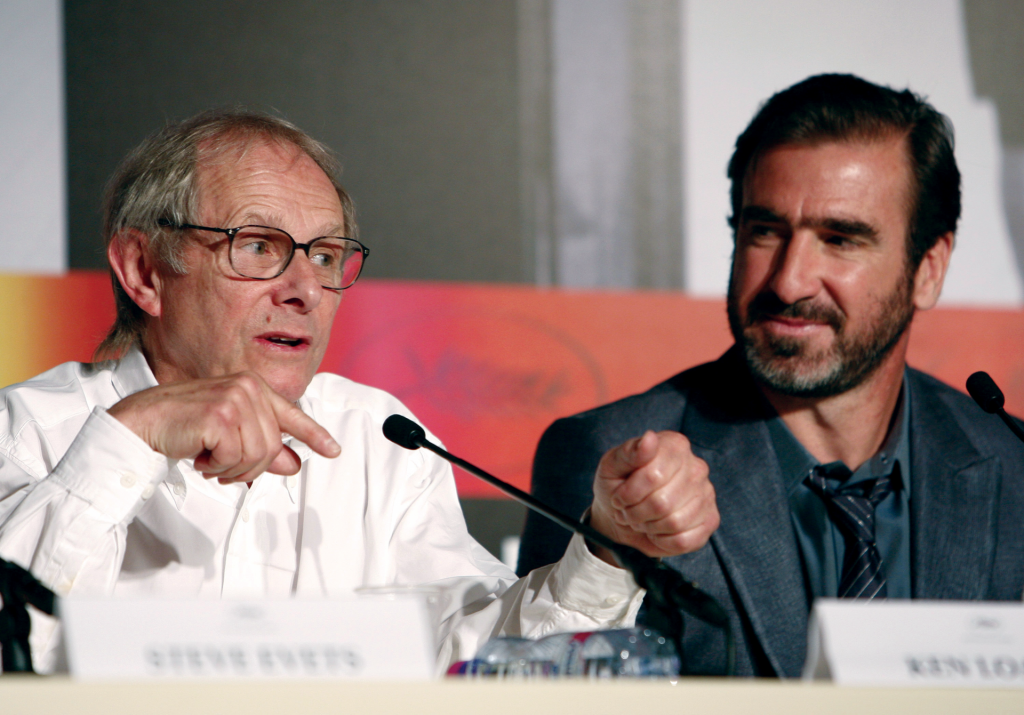
The climax involves, in a typical scene of Loachian solidarity and team play, a van load of Eric’s mates, all Man United fans and wearing Cantona masks – the Frenchman is among them – invading the gangster’s home and embarrassing him.
The film was a hit with audiences and was selected to be in competition at the Cannes film festival in May 2009, followed in June by a red carpet Manchester premiere in Salford Quays in the shadow of Old Trafford.
I was asked to host a rather raucous evening of Q&A at BFI Southbank for this film, with Cantona, Loach and Evets all on stage for me to marshal and moderate. We had dinner in the BFI’s then new restaurant beforehand and I sat next to Eric. I don’t remember much about it, except that he wanted my sea bass when it arrived and I gracefully swapped it for his chicken. The effervescent Evets stole the limelight when we were on stage, regaling us with stories of working with Eric. I remember the audience hooting with laughter and Eric chuckling along, even though he surely can’t have fully understood Evets’ often bawdy anecdotes.
I asked Ken Loach for his memories of the shoot itself and the double Palme d’Or-winning director was quick to respond. “We are still in touch from time to time,” he said. “Eric has been a loyal friend in difficult times, and it has been a pleasure to know him and to work with him.
“The first thing to say about Eric is that he is a team player, a quality we need in films as much as in football. He has a great sense of humour and he connected with the crew and cast on Looking for Eric with warmth and an easy friendship. We had a lot of laughs.
“But Eric took his work seriously, was always on time, knew what was in the script and made it his own.”
Loach recalled an on-set ruse he played in order to get a reaction from the lead character, played by Evets, and to augment the realism of the scene in which Cantona first appears to the stoned Eric in his bedroom, as if summoned out of a poster on the wall, like a genie and a magic wish. “I wanted it to be a surprise,” remembers Loach. “So we made Eric, a big man, hide under a blanket until the moment he was to appear. Steve had no idea he was in the room or what would happen and there was much suppressed hilarity from us on set, but Eric made it work brilliantly, and Steve was duly shocked.” You can see the authenticity of the reaction on the screen.
Looking for Eric is probably Cantona’s finest moment in movies, as Loach and his screenwriter Paul Laverty exploit the ex-footballer’s natural charisma and harness his reputation for gnomic utterances and philosophical maxims, getting him to tread their trademark line between comedy and comradeship.
It did put Cantona back on the film map, though he has rarely done English-language work since. French action movie Switch sees him as a police investigator exonerating a woman framed for murder; there was an appearance as a football coach in a big-hit French sex comedy called Porn in the Hood (Les Kaira) and a turn as a character called The Stud in erotic 2013 Cannes entry You and the Night, by Yann Gonzalez, which also featured Béatrice Dalle and a pre-Call My Agent! (Dix pour cent) Nicolas Maury.
Continuing a trend for one-word character titles, Cantona glowered well enough as a henchman called The Corsican in brutal Danish western Salvation, hard on the trail of Mads Mikkelsen’s frontiersman. And he received decent billing for a drama called Les Rois du Monde in 2015, alongside Sergi López and Romane Bohringer. He is currently starring in a French drama on Netflix, called Inhuman Resources, taking the lead role of a long-term unemployed man who gets an interview for a job he wants so desperately that he turns to violence and takes hostages.
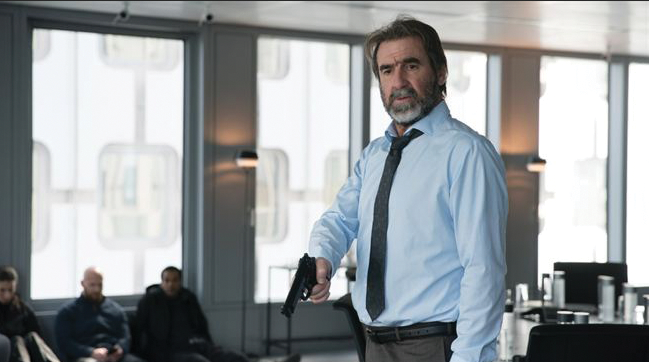
Eric starred for Terry Gilliam in a famous 2002 Nike advert called The Secret Tournament, featuring the world’s best footballers (Thierry Henry, Luís Figo, Roberto Carlos, Ronaldinho, Totti) playing matches in a variety of cages, with Cantona as the referee.
Gilliam oversaw the production and the follow-up, called The Rematch, which featured a game played in the hull of a disused tanker. I spoke to Gilliam last week about his recollections of working with Cantona.
“Eric was a joy to work with,” he said. “He’s a powerful presence but light on his feet, like a dancer. Very smart, and very funny. He’s a star,” Gilliam added, without hesitation.
Cantona’s advertising career has arguably outstripped his movie work. There was a Kronenbourg 1664 advert that was taken down for misleading viewers that it was brewed in Alsace, when it is made in the UK. He is currently starring in a Christmas campaign for Sports Direct, opposite other football stars such as England’s Mason Mount and Chelsea women manager Emma Hayes.
He is clearly happy to spoof his own persona, a trait that has stood him in good stead since the “Seagulls follow the trawler” quote. His appeal is a blend of irony, menace and mystery, a hulking enigma who looks foreboding yet hints and winks at softness and intelligence deep within. His screen persona is a natural extension of the attitude he once exuded on the pitch, one that suggests: “I’m better than this, but I’m here, and you’re lucky to be watching it.”
If you can’t quite think of a definitive Eric Cantona role, it’s because he’s best at playing a version of himself, as we saw in the Ken Loach film. Which is actually what the best movie stars always did, from Sean Connery to Cary Grant. Looking back on it, Cantona can be said to have carved out for himself the most artistically successful acting career of any footballer.
For someone who once spoke of capturing the same “independence and rebelliousness” as Marlon Brando, that is not quite the peak Eric Cantona may have hoped for in his second act. But even if his films and commercials are one day forgotten, the footage of his greatest role – as a footballer – will be replayed for a long, long time


